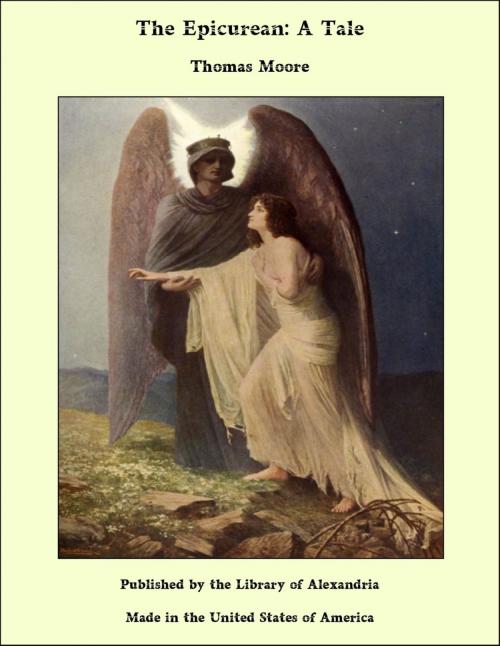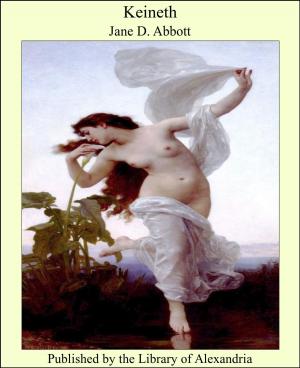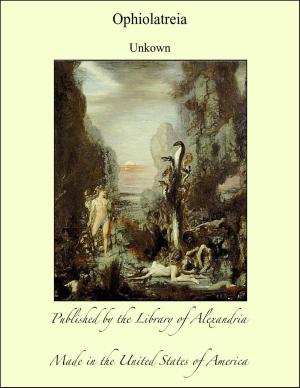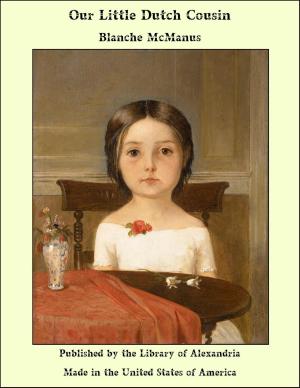| Author: | Thomas Moore | ISBN: | 9781465626233 |
| Publisher: | Library of Alexandria | Publication: | March 8, 2015 |
| Imprint: | Language: | English |
| Author: | Thomas Moore |
| ISBN: | 9781465626233 |
| Publisher: | Library of Alexandria |
| Publication: | March 8, 2015 |
| Imprint: | |
| Language: | English |
It was in the fourth year of the reign of the late Emperor Valerian, that the followers of Epicurus, who were at that time numerous in Athens, proceeded to the election of a person to fill the vacant chair of their sect;—and, by the unanimous voice of the School, I was the individual chosen for their Chief. I was just then entering on my twenty-fourth year, and no instance had ever before occurred, of a person so young being selected for that office. Youth, however, and the personal advantages that adorn it, were not, it may be supposed, among the least valid recommendations, to a sect that included within its circle all the beauty as well as wit of Athens, and which, though dignifying its pursuits with the name of philosophy, was little else than a pretext for the more refined cultivation of pleasure. The character of the sect had, indeed, much changed, since the time of its wise and virtuous founder, who, while he asserted that Pleasure is the only Good, inculcated also that Good is the only source of Pleasure. The purer part of this doctrine had long evaporated, and the temperate Epicurus would have as little recognised his own sect in the assemblage of refined voluptuaries who now usurped its name, as he would have known his own quiet Garden in the luxurious groves and bowers among which the meetings of the School were now held. Many causes, besides the attractiveness of its doctrines, concurred, at this period, to render our school the most popular of any that still survived the glory of Greece. It may generally be observed, that the prevalence, in one half of a community, of very rigid notions on the subject of religion, produces the opposite extreme of laxity and infidelity in the other; and this kind of re-action it was that now mainly contributed to render the doctrines of the Garden the most fashionable philosophy of the day. The rapid progress of the Christian faith had alarmed all those, who, either from piety or worldliness, were interested in the continuance of the old established creed—all who believed in the Deities of Olympus, and all who lived by them. The consequence was, a considerable increase of zeal and activity, throughout the constituted authorities and priesthood of the whole Heathen world. What was wanting in sincerity of belief was made up in rigour;—the weakest parts of the Mythology were those, of course, most angrily defended, and any reflections, tending to bring Saturn, or his wife Ops, into contempt, were punished with the utmost severity of the law. In this state of affairs, between the alarmed bigotry of the declining Faith, and the simple, sublime austerity of her rival, it was not wonderful that those lovers of ease and pleasure, who had no interest, reversionary or otherwise, in the old religion, and were too indolent to enquire into the sanctions of the new, should take refuge from the severities of both under the shelter of a luxurious philosophy, which, leaving to others the task of disputing about the future, centered all its wisdom in the full enjoyment of the present. The sectaries of the Garden had, ever since the death of their founder, been accustomed to dedicate to his memory the twentieth day of every month. To these monthly rites had, for some time, been added a grand annual Festival, in commemoration of his birth. The feasts, given on this occasion by my predecessors in the Chair, had been invariably distinguished for their taste and splendour; and it was my ambition, not merely to imitate this example, but even to render the anniversary, now celebrated under my auspices, so brilliant, as to efface the recollection of all that went before it.
It was in the fourth year of the reign of the late Emperor Valerian, that the followers of Epicurus, who were at that time numerous in Athens, proceeded to the election of a person to fill the vacant chair of their sect;—and, by the unanimous voice of the School, I was the individual chosen for their Chief. I was just then entering on my twenty-fourth year, and no instance had ever before occurred, of a person so young being selected for that office. Youth, however, and the personal advantages that adorn it, were not, it may be supposed, among the least valid recommendations, to a sect that included within its circle all the beauty as well as wit of Athens, and which, though dignifying its pursuits with the name of philosophy, was little else than a pretext for the more refined cultivation of pleasure. The character of the sect had, indeed, much changed, since the time of its wise and virtuous founder, who, while he asserted that Pleasure is the only Good, inculcated also that Good is the only source of Pleasure. The purer part of this doctrine had long evaporated, and the temperate Epicurus would have as little recognised his own sect in the assemblage of refined voluptuaries who now usurped its name, as he would have known his own quiet Garden in the luxurious groves and bowers among which the meetings of the School were now held. Many causes, besides the attractiveness of its doctrines, concurred, at this period, to render our school the most popular of any that still survived the glory of Greece. It may generally be observed, that the prevalence, in one half of a community, of very rigid notions on the subject of religion, produces the opposite extreme of laxity and infidelity in the other; and this kind of re-action it was that now mainly contributed to render the doctrines of the Garden the most fashionable philosophy of the day. The rapid progress of the Christian faith had alarmed all those, who, either from piety or worldliness, were interested in the continuance of the old established creed—all who believed in the Deities of Olympus, and all who lived by them. The consequence was, a considerable increase of zeal and activity, throughout the constituted authorities and priesthood of the whole Heathen world. What was wanting in sincerity of belief was made up in rigour;—the weakest parts of the Mythology were those, of course, most angrily defended, and any reflections, tending to bring Saturn, or his wife Ops, into contempt, were punished with the utmost severity of the law. In this state of affairs, between the alarmed bigotry of the declining Faith, and the simple, sublime austerity of her rival, it was not wonderful that those lovers of ease and pleasure, who had no interest, reversionary or otherwise, in the old religion, and were too indolent to enquire into the sanctions of the new, should take refuge from the severities of both under the shelter of a luxurious philosophy, which, leaving to others the task of disputing about the future, centered all its wisdom in the full enjoyment of the present. The sectaries of the Garden had, ever since the death of their founder, been accustomed to dedicate to his memory the twentieth day of every month. To these monthly rites had, for some time, been added a grand annual Festival, in commemoration of his birth. The feasts, given on this occasion by my predecessors in the Chair, had been invariably distinguished for their taste and splendour; and it was my ambition, not merely to imitate this example, but even to render the anniversary, now celebrated under my auspices, so brilliant, as to efface the recollection of all that went before it.















